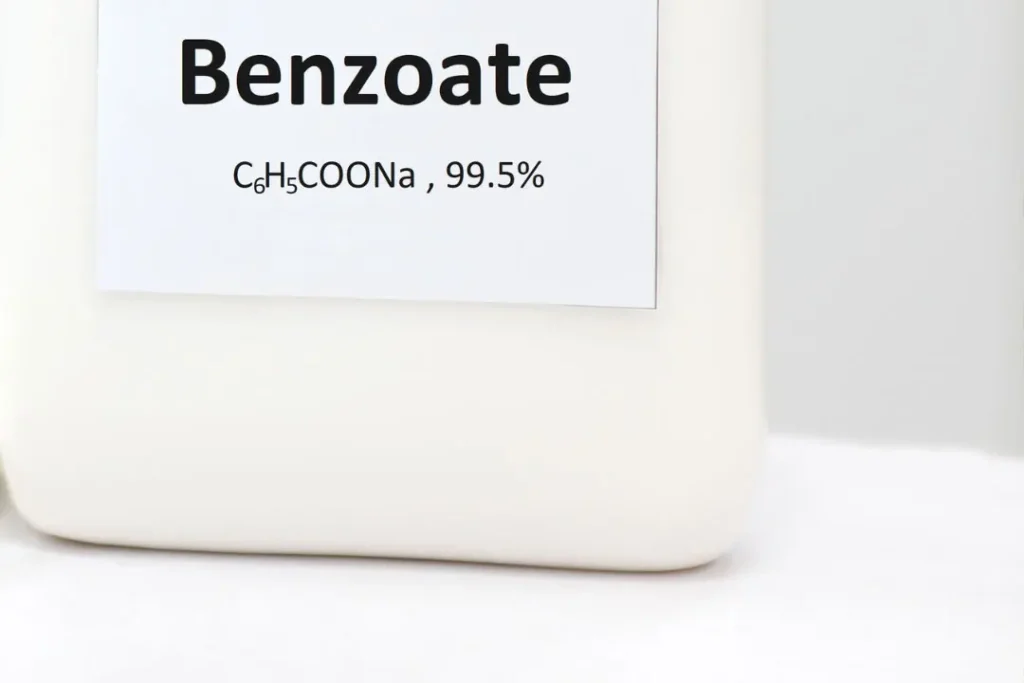The Cananga odorata tree, sometimes known as the ylang-ylang tree, produces cananga oil, which is both natural and essential. This oil has a long history in traditional medicine and is now well-known for its many health benefits . In this article, we will evaluate the properties of cananga oil, examine its potential health advantages, advise to you the best dose in which you should take, talk about potential negative side effects, look at probable drug interactions, and provide recommendations for safe use. It is importnat to choose wisely whether or not to use Cananga oil as a dietary supplement by first understanding the chemistry of the substance and its physiological affects it can have on the human body.
You May Also Like:
Camu Camu: Benefits, Dosage, Side Effects, Drug Interactions, and Other Important Information
Nature of Cananga Oil
Cananga oil is obtained from the blossoms of the Cananga odorata tree through a technique called steam distillation. Several bio-active substances, including germacrene D, caryophyllene, benzyl benzoate, linalool, and geranyl acetate, are present in the oil. These substances are what makes this oil essesntial and beneficial, and are also what gives it a distinct scent.

Health Benefits of Cananga Oil
- Relaxing Effects on the Body and Mind: Cananga oil is well known for its relaxing effects on the body and mind. Cananga oil also has the ability to boost your mood, ease anxiety, and induce relaxation if you choose to inhale it or apply it topically. The reason for all these benefits and usages is becasue it has the ability and capacity to control the activity of brain neurotransmitters including serotonin and GABA.
- Skin and Hair Care: Cananga oil has strong hydrating and antibacterial benefits . This is because it can control sebum production, encourage healthy skin cell regeneration, treat acne, and other skin disorders. It is often used in skincare products. It can also enhance hair growth and increase scalp health if you have issues growing your hair or have any kind of scalp condition.
- Anti-inflammatory and Pain Relief: Cananga oil’s ingredients have anti-inflammatory properties , which you can greatly benefit from if you have arthritis, muscular pains, and migraines. It cannot heal these conditions completely, but it can reduce the pain if you have it severely. , It can even be added to bathwater or be used topically as a massage oil!
- Antibacterial Properties: Cananga oil has wide-ranging antibacterial properties that make it effective in treating bacterial and fungal diseases. It can be used topically, utilized in aromatherapy, or you can also mix it in natural cleaning solutions.

Chemistry of Cananga Oil
The chemical composition of cananga oil is complex, but it contributes to many of its special qualities and its medicinal benefits. Germacrene D, caryophyllene, benzyl benzoate, linalool, and geranyl acetate are the major ingredients of cananga oil. It is advised to understand the importance of each one before you try it.
- Germacrene D: This ingredient is scientifically known as sesquiterpene hydrocarbon and it is in charge of giving Cananga oil its scent. Due to its anti-inflammatory and antibacterial qualities, germacrene D can also be benefical if you want to use it for skin care, and if you need extra aid in healing a wound..
- Caryophyllene: Caryophyllene is a sesquiterpene with analgesic and additional anti-inflammatory properties It works by precisely targeting cannabinoid receptors (CB2) in the body’s endocannabinoid system, which is the part of your system that aids in pain relief and inflammation reduction.
- Benzyl Benzoate: This is an ester molecule with antiparasitic benefits , and what is called benzyl benzoate. If you have a condition such as scabies and/or any other type of ectoparasitic infection, they can be treated with it.
- Linalool: Linalool is a monoterpene alcohol, which gives Cananga oil its soothing and relaxing properties. It affects your brain’s GABA neurotransmitter in a way that promotes relaxation, lowers stress levels, and enhance better sleep.
- Geranyl Acetate: Geranyl acetate is the substance that gives Cananga oil its pleasant, flowery scent. It is often used in fragrances and aromatherapy and has been said to have antimicrobial qualities.

PhysiologicalProperties of Cananga Oil
- Neurotransmitter Modulation: Serotonin and GABA are only two of the neurotransmitters that cananga oil interacts with in your brain. Cananga oil has a strong ability to modulate serotonin activity, which is important in mood regulation. This is what leads to its production of anxiolytic and antidepressant properties. An inhibitory neurotransmitter called GABA encourages relaxation and aids in lowering anxiety and tension.
- Anti-inflammatory Activity: Cananga oil has anti-inflammatory qualities due to the presence of substances like caryophyllene and germacrene D. Inflammation in your body is decreased by these substances because they prevent the synthesis of pro-inflammatory cytokines and enzymes.
- Antibacterial Properties: Cananga oil has broad-spectrum antibacterial qualities that fight against a variety of bacteria and fungi. The oil is useful if you need a natural remedy for treating infections and maintaining your general skin health.This is because the ingredients in it can damage microbial cell membranes and hinder their development.
- Skin Penetration and Absorption: Cananga oil’s volatile nature enables it to pass through the skin barrier and be absorbed into the deeper layers of your skin.. As a result, its medicinal components are able to act on skin cells, which will encouraging healing, controlling your sebum production, and enhancing the overall health of your skin. .
- Modulation of the Endocannabinoid System: Caryophyllene, the last of one of Cananga oil’s ingredients, interacts with cannabinoid receptors in your body’s endocannabinoid system. The analgesic and anti-inflammatory properties of thisoil are what most people benefit from.
Understanding Cananga oil’s chemical and physiological properties will help you better understand how it can affect your body and brain to produce its range of health benefits. To completely understand the complex processes behind its therapeutic benefits, we encourage you to study this further.

Optimal Dosage of Cananga Oil
The ideal cananga oil dose depends on how you plan to apply it. It also depends on your age, general health, and sensitivity to certain medications and supplements. As a general rule, it is advised to begin with a low concentration and, if required, gradually raise the dose. To avoid irritating your skin if you use it topically, Cananga oil needs to be diluted with a carrier oil. It is crucial to adhere to any product-specific instructions and to seek the advice of your healthcare provider for more advice.

Side Effects of Cananga Oil
Despite the fact that cananga oil is typically safe for topical use and aromatherapy, some people may develop allergies or sensitive skin. Before using the oil often, we suggest using a patch test first. We also advise that you first speak to your doctor before using cananga oil because it can have negative side effects.
Potential Substance Interactions
Certain medicines, such as sedatives, antidepressants, and blood pressure-lowering pharmaceuticals, may interact with cananga oil. If you plan to take the oil in conjunction with certain drugs, you should take into account how the oil can intensify sedative effects or change your blood pressure. Before using Cananga oil as a dietary supplement or for therapeutic reasons, if you are using prescription drugs, it is important to first speak with your doctor.
Responsible Uses of Cananga Oil
- Quality and Sourcing: To guarantee purity and effectiveness, it is crucial to choose high-quality Cananga oil from reliable vendors. Make sure that you choose oils that have passed third-party testing, are 100% pure, and are organic.
- Application and Dilution: Before using cananga oil topically, make sure it is first diluted with the carrier oil. Typically, we advise the dilution ratio to be 1-3% of Cananga oil to carrier oil. . Before using it on a large area of your body, a tiny patch test should be performed.
- Aromatherapy and Inhalation: Cananga oil can be vaporized, diffused, or added to bathwater for inhalation. For the right dose and duration, it is advised that you abide by the manufacturer’s directions.
Cananga Oil:
Conclusion
Cananga oil can be extremely beneficial if you are looking for a natural supplement that promotes healthy skin, eases pain, encourages rest and relaxation, and aids in antibacterial remedies. However, it is important to remember that it is a very strong supplement and needs to be taken in moderation. All instructions need to be followed by the manufacturers, and your doctor. Cananga oil may have a beuatiful and flowery scent, but following moderation instructions and the proper dosage is crucial. By taking Cananga oil as a daily supplement, you will enjoy the opportunity to enhance your wellbeing, sleep better, feel better, and improve your overall lifestyle.
References:
- Effects of adaptogens on the central nervous system and the molecular mechanisms associated with their stress-protective activity. Retrieved from: https://www.mdpi.com/1424-8247/3/1/188
- Ylang Ylang (Cananga odorata) Essential Oil: A Systematic Review of Its Ethnopharmacology, Phytochemistry, and Pharmacology. Retrieved from: https://www.ncbi.nlm.nih.gov/pmc/articles/PMC7218593/
- Aromatherapy: A Systematic Review. Retrieved from: https://www.ncbi.nlm.nih.gov/pmc/articles/PMC3612440/
Important Note: The information contained in this article is for general informational purposes only, and should not be construed as health or medical advice, nor is it intended to diagnose, prevent, treat, or cure any disease or health condition. Before embarking on any diet, fitness regimen, or program of nutritional supplementation, it is advisable to consult your healthcare professional in order to determine its safety and probable efficacy in terms of your individual state of health.
Regarding Nutritional Supplements Or Other Non-Prescription Health Products: If any nutritional supplements or other non-prescription health products are mentioned in the foregoing article, any claims or statements made about them have not been evaluated by the U.S. Food and Drug Administration, and such nutritional supplements or other health products are not intended to diagnose, treat, cure, or prevent any disease.


